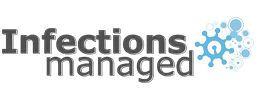Receiving an HIV diagnosis can change your life. It may bring about feelings of fear, uncertainty and sadness. However, you need to remember that a diagnosis does not define you as a person. With the right information and support, it is possible to live a long and healthy life with HIV. Here are some steps to take after receiving an HIV diagnosis:
Educate yourself.
Learn about HIV treatment options and how to stay healthy. There are plenty of reliable resources available online, as well as support groups and healthcare professionals who can provide information and guidance. Find your local infectious disease clinic if you need additional information about your options.
Seek medical care.
Find an infectious disease clinic that specializes in HIV treatment. They can help you develop a treatment plan that works best for you and monitor your health closely. Antiretroviral therapy (ART), the standard treatment for HIV, can help control the virus and prevent it from progressing to AIDS. The sooner you seek medical care post-diagnosis, the better.
Take care of your mental health.
An HIV diagnosis can take a toll on your emotional wellbeing. Seek support from friends, family or a mental health professional. You may also consider joining a support group. Support groups connect you with others who are living with HIV and provide safe spaces to share experiences and advice. Remember, you don’t have to go through this on your own.
Practice self-care.
Managing HIV requires you to take care of your overall health. This includes eating a balanced diet, getting regular exercise, staying hydrated and getting enough rest. Avoid smoking, excessive alcohol consumption and recreational drug use, as they can weaken your immune system. If you struggle with addiction, seek out recovery resources, such as therapy and support groups.
Practice safe sex.
Protect yourself and your partner(s) from transmitting HIV or other sexually transmitted infections. Use protection consistently and correctly, and consider exploring other prevention options such as pre-exposure prophylaxis (PrEP) for yourself or your partner(s).
Stay engaged in care.
Regular medical appointments are essential for monitoring your health and adjusting your treatment plan as needed.Keep up with your medications, and follow your healthcare provider’s recommendations. The more engaged you are with your HIV care, the less of an impact it will have on your life and overall health.
Remember, an HIV diagnosis is not the end of the world. With proper care and support, you can live a long and fulfilling life with HIV. Educate yourself, seek medical care, care for your mental and physical health, and practice safe sex. Above all, remember that you are not alone – there are resources and people available to support you on your journey.
If you are in South Florida and believe you may have been exposed to HIV, contact Infections Managed today to schedule your test, and take control of your sexual health. Your wellbeing is our top priority.

